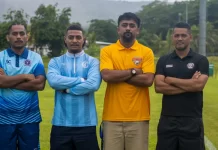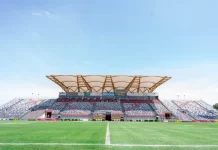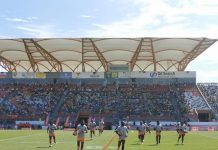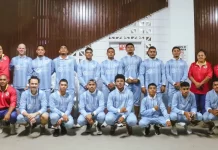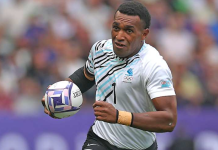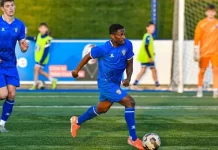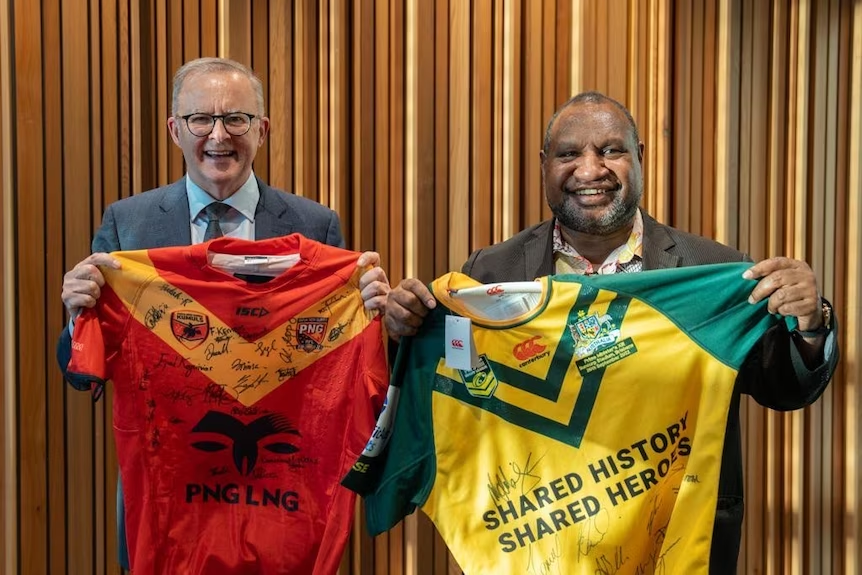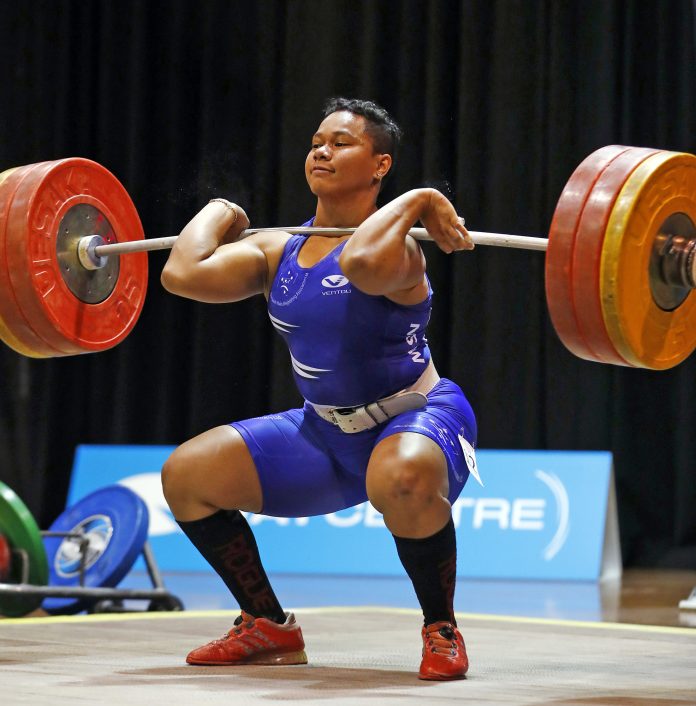
The International Weightlifting Federation (IWF) has put quality before quantity in its qualification system for the Paris 2024 Olympic Games.
It has also devised a system that, unlike qualifying for Tokyo, can be exploited by cheats because it allows athletes to “hide away for a year”.
It was privately dubbed “the North Korean qualifying system” by one of the delegates at an IWF gathering in Lausanne at the weekend.
Any complaints will fall on deaf ears, however, as the qualification system has been approved by the International Olympic Committee (IOC), which has now published the document on its website.
The IWF has emailed the qualification system document to member federations but has not made any public statement about it on its website, where the document sits under the Olympic Games entry on the 2024 calendar of events.
In the Tokyo 2020 Olympic Games there were places for all Continental Federations in all weight categories but that policy has been ditched after a huge cut in quota places.
Weightlifting had 260 athletes at Rio 2016 and 196 at Tokyo last year, but will have only 120 in Paris, which could be its farewell appearance as an Olympic sport.
Decades of doping, and the IOC’s long-running discontent with the way the sport is governed, led to the IOC removing weightlifting from the programme for Los Angeles 2028.
It can return only if it shows clear signs of a “culture change”
The biggest sufferers under the new qualification system will be Africa and Oceania, judging by the qualifying rankings for Tokyo 2020.
There are fewer weight categories in Paris, 10 compared to 14 in Tokyo, with 12 athletes in each.
The maximum team size is down from eight to six, three men and three women; and the body weights have changed too.
It is not possible to compare like for like, but if the Paris system had applied for Tokyo, Africa would not have been represented in six categories and Oceania would have missed five.
On past results it looks possible that no athletes from sub-Saharan Africa will qualify directly for Paris, and the Pacific Islands will be challenged too.
The top 10 in the rankings – but only one athlete per nation – will qualify in all weight categories, and the remaining 20 places will be taken up by 10 continental allocations, four places for the host nation and six tripartite invitations.
If any Continental Federations are not represented in the top 10, the highest-placed athlete from any – but not all – of them will qualify.
This makes it possible, theoretically at least, that any given weight category could feature only two continents if the top 10 in the rankings are all from Asia, for example, and the highest-ranked non-Asian is from Europe.
France could take the 12th and final place in that category as host nation, leaving only Asia and Europe represented.
While that is highly unlikely to happen, the fact that it could shows that the IWF Board, which approved the qualification system, has put quality first.
That is understandable if you take the example from Tokyo of the women’s 59 kilograms category, among others.
The “one place for all continents” policy led to a young lifter from Botswana, Magdeline Moyengwa, competing after a series of unforeseen circumstances that included doping disqualifications and athletes switching to another weight category.
Moyengwa’s total of 135kg in the African Championships last year was only 2kg more than Olympic champion Kuo Hsing-Chun’s clean and jerk in Tokyo.
The Botswanan, the first weightlifter from that country to lift at the Olympic Games, did not make a total in Tokyo.
In nine weight categories, a lifter from either Africa or Oceania finished last of those who made a total, although the results were distorted by the absence of Samoa, whose team had to remain at home because of COVID-related travel restrictions.
As for the anti-doping rules, they were described as “worryingly inadequate” by the delegate in Lausanne, who said North Korea would benefit.
In qualifying for Tokyo, athletes were required to participate in six events within 18 months.
The level of compulsory testing throughout that period made it all but impossible for cheats to use performance-enhancing drugs without being caught.
There were no doping positives in Tokyo.
The Paris system is far less rigorous.
Athletes must compete in five events, two of which are stipulated – the 2023 IWF World Championships and an IWF World Cup in the months leading up to Paris 2024.
The other three can be chosen from a list of five optional events: Continental Championships in 2023 and 2024; two IWF Grand Prix events in 2023; and the IWF World Championships in November this year.
In theory, an athlete could disappear for a year now: they could train without competing for the whole of 2022, return in the first half of 2023 and make a huge total in their first qualifying competition – either an IWF Grand Prix or Continental Championships.
Only the single best performance in qualifying will count, rather than a cumulative format, so an athlete who starts with a big total could go through the rest of the qualifying programme, all four subsequent events, without having to make another lift.
Athletes are compelled to “participate” in certain events but they do not have to actually lift if they are unfit or do not need to improve their total to finish as their nation’s leading athlete in the top 10.
They can weigh in, attend the presentation of athletes and make themselves available for anti-doping tests without competing on the platform – just as they could, and sometimes did, in qualifying for Tokyo.
There is also concern that the system allows an athlete to miss one of the two stipulated compulsory events in “truly exceptional circumstances” – being physically unable to attend because of a documented serious injury or because of travel restrictions beyond their control.
An independent panel will rule on whether any claim of “truly exceptional circumstances” is valid.
The qualifying period covers 21 months, from 01 August this year until 28 April 2024.
The International Testing Agency (ITA), which carries out all anti-doping procedures for the IWF, will carry out “robust” testing missions in and out of competition from August, and will target nations with a bad doping record.
“I’m sure North Korea will love it,” said the delegate in Lausanne, referring to the fact that no North Koreans have ever undergone out-of-competition testing because foreign testing missions cannot get into the country.
“If they choose not to compete until 2023, which they can do, they can hide themselves away and do as they please without fear of being tested.
“What is worrying is that anybody else can do the same – I’m surprised the IOC has approved it.”
Because North Korea withdrew from the delayed Tokyo 2020 Games over COVID-19 concerns, and because out-of-competition testing has never happened there, none of its athletes has been available for testing for about two-and-a-half years – which could become three-and-a-half.
The IOC also appears to have relaxed its stance on historic doping.
It set out a requirement in December last year for the IWF to confirm that “the link between the number of quota places available per country and the doping history of the respective National Federations will be maintained” in the Paris 2024 qualification system.
When the IOC retested stored samples from the Beijing 2008 and London 2012 Games, it discovered 61 doping violations by weightlifters.
Multiple offences within a year led to outright bans for four nations, Romania, Thailand, Egypt and Malaysia.
Offences since 2008 were tallied as part of the Tokyo qualification system, and 17 nations had reduced athlete quotas because they had amassed 10 or more doping violations.
For Paris, there is no sanctioning of National Federations for offences that took place many years ago.
Three or more offences in a three-year period from the start of the Tokyo Games to the start of the Paris Games – July 23 last year until July 25 2024 – will result in “some or all” quota places being forfeited.
If three or more offences within that period lead to four-year suspensions for athletes or support personnel, the standard period under current anti-doping rules, that nation will be banned outright from Paris.
The qualifying system also sets out conditions about whereabouts information for individuals, but they are no different to the current IWF Anti-Doping Rules.
SOURCE: INSIDE THE GAMES/PACNEWS






